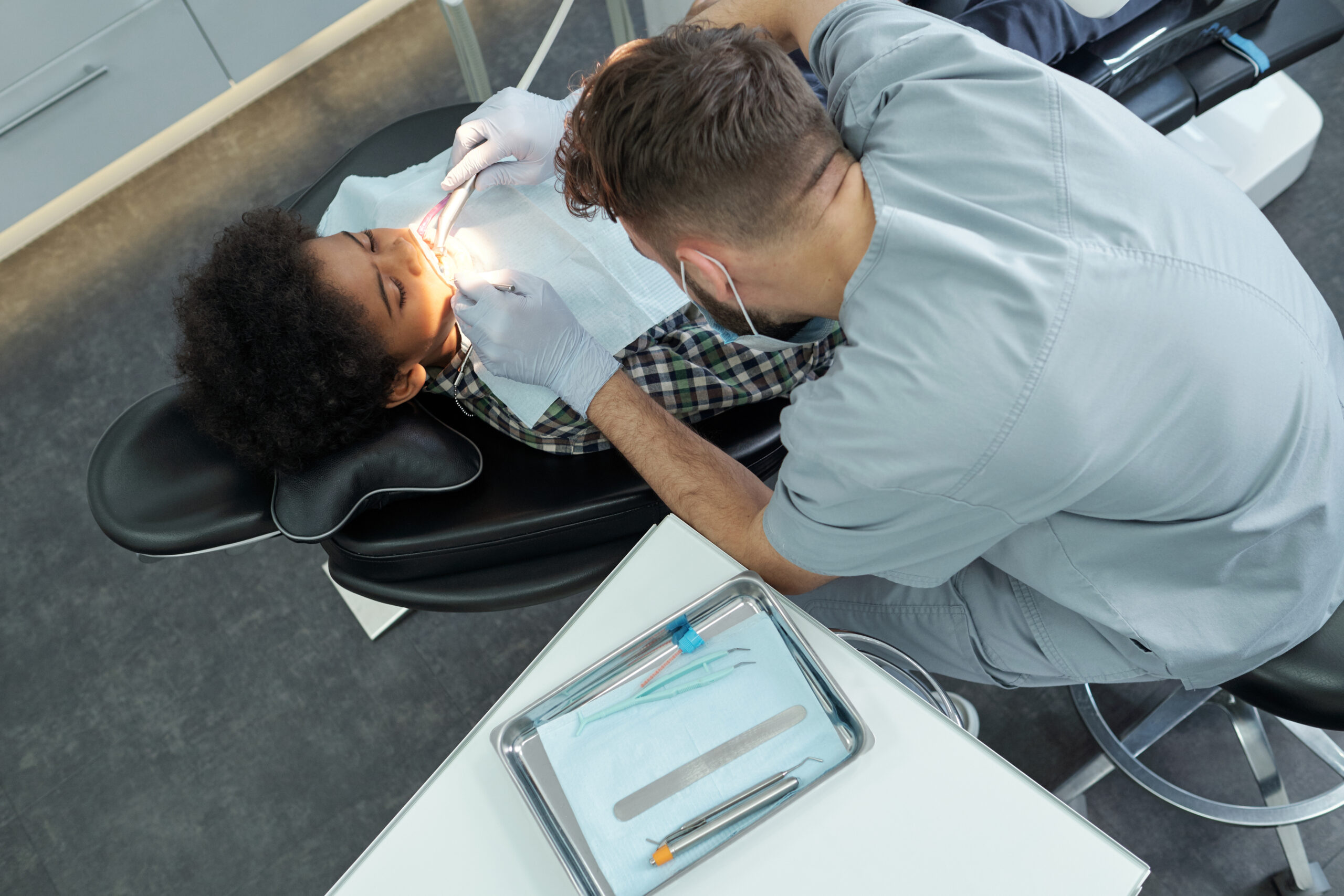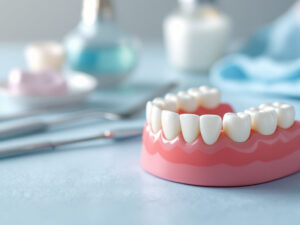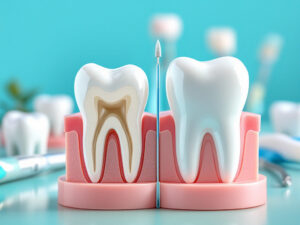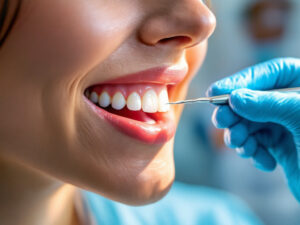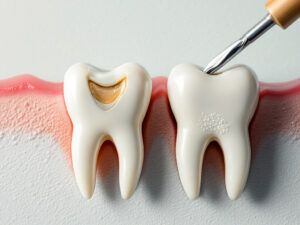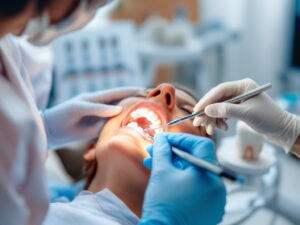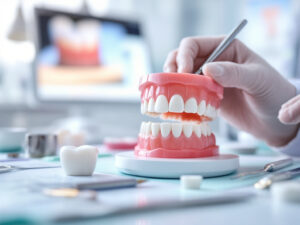Understanding sedation dentistry
If you or a loved one finds routine dental visits stressful, our sedation dentistry service can offer significant relief. Dental anxiety is more common than you might think. In fact, approximately 36% of the population experiences some form of dental anxiety or fear of dental procedures (Greenville Family Dentistry). At Cloninger Dentistry, we understand these unique challenges and believe that a supportive environment is essential for creating a positive dental experience. Sedation dentistry involves using special medications or inhaled gases to help you physically and emotionally relax during treatment, so even more involved procedures like dental implants, crowns, or extended treatments feel significantly more comfortable.
When you arrive for sedation dentistry, you remain conscious during the procedure unless otherwise arranged. The primary difference lies in your level of relaxation. Light to moderate sedation can help you feel calm and at ease while still letting you respond to your dentist’s instructions. For those seeking a deeper level of sedation, we also provide methods such as intravenous (IV) sedation, which can reduce awareness of the procedure. This allows individuals who typically experience heightened anxiety to remain calm. By delivering tailored treatment programs in a comprehensive care setting, we strive to address your fears and instill a sense of empowerment.
At its core, sedation dentistry is about addressing an important concern. Many people delay or avoid dental care due to fear or a negative past experience. This postponement can lead to more complex oral health issues over time, from gum conditions to extensive tooth decay. Our sedation approach offers the support necessary for lasting oral health by making treatment more approachable and helping you confront potential dental problems before they worsen. By integrating an empathetic tone and individualized plans, we ensure no two patients experience sedation the same way. Instead, sedation is always customized to fit your concerns, health status, and comfort preferences.
How sedation supports comfort
Sedation provides a cushion of comfort in situations that can otherwise feel overwhelming. Whether it is a simple filling or a procedure that spans several hours, sedation helps you remain free from stress, racing thoughts, and the physical restlessness that often accompanies anxiety. By moderating your awareness of sights, sounds, and sensations, sedation for anxious patients can transform what might have been an intimidating event into a more relaxing one.
Calming the mind and body
During sedation, your nervous system relaxes, and your stress hormones are significantly reduced. This shift in chemistry translates into fewer fight-or-flight responses, allowing you to sit calmly throughout the procedure. When you are calm, you are more receptive to the sensation of gentle guidance and supportive reassurance from the dental team. This supportive environment is crucial for men, women, and children who experience heightened anxiety.
Minimizing gag reflex and discomfort
An overly active gag reflex is another hurdle for some individuals. The gag response can stand in the way of receiving necessary dental treatment, particularly if tools or equipment touch the back of the throat. With sedation, the gag reflex is less pronounced, reducing discomfort. Additionally, certain forms of sedation dentistry make it easier for you to hold your mouth open longer without a constant urge to cough or close your jaw.
Just as importantly, sedation helps stave off fatigue. Maintaining an open mouth and staying motionless for an extended period can be taxing. When your muscles and mind are relaxed, you conserve energy and can endure longer procedures without undue stress.
Supporting longer treatments
Some treatments require extended chair time—such as major restorations, multiple fillings, or complex cosmetic transformations. Our sedation dentistry can be a genuine relief if you need prolonged care. Instead of booking multiple appointments, you can potentially receive more treatment in one visit. You can stay in a state of relaxed awareness, moving through the entire process with minimal distress, and wake up with critical dental work completed.
By alleviating discomfort, reducing the gag reflex, and bringing a measure of calm into the dental chair, sedation dentistry encourages a much more positive attitude toward essential oral health treatments. This emphasis on comfort and support is one of the reasons we consider sedation a fundamental tool in providing comprehensive care for you and your loved ones.
Benefits of sedation dentistry
Sedation provides a broad range of benefits that go beyond simply feeling less anxious. From saving time to boosting your sense of control, each advantage underscores our commitment to delivering individualized plans that meet your specific needs. Below are some of the most notable benefits of sedation dentistry.
Reduced anxiety and fear
One hallmark advantage of sedation dentistry is its effectiveness in easing the fear that keeps many patients from scheduling vital treatments. Even individuals with a deep-seated phobia of needles, drills, or simply being in a dental chair can find reassurance knowing that sedation will minimize these concerns. This sense of calm sets the stage for a smoother experience, leading to better cooperation and more thorough dental care.
Fewer, more efficient appointments
When you can relax for a longer time, our dental team has the opportunity to complete multiple procedures in one session. This efficiency can mean fewer visits overall, so you save time and avoid the stress of repeated office trips. Whether you are coming in for extensive restorative work, a cosmetic smile makeover, or an in-depth cleaning and examination, sedation makes each appointment more productive.
Improved cooperation for special needs
Sedation dentistry is often a game-changer for individuals with special healthcare needs or those who have difficulty staying still for extended periods. For some patients with involuntary movements or heightened sensitivity, it can be challenging to tolerate normal dental procedures. Under mild to moderate sedation, though, these hurdles tend to ease. By tailoring sedation to each individual’s unique challenges, we create a safer, more inclusive space that delivers the support necessary for lasting dental health.
Enhanced comfort during lengthy treatments
Procedures like bone grafting, implant placement, or other complex reconstructive services may involve multiple hours of concentrated work. This can feel intimidating when you are fully alert for the entire duration. Sedation ensures you remain relaxed and can handle lengthy procedures. Moreover, sedation helps prevent muscle stiffness and fatigue, because your body is less tense.
Positive long-term association
Addressing your dental needs in a calm, non-traumatic manner helps transform your overall perception of oral care. Instead of dreading the next appointment, you might find yourself feeling less anxious about returning. A more positive association fosters consistent visits, which lead to better oral health outcomes over the long term. That level of optimism and confidence builds upon itself, eventually turning the dental office from a place of stress into a space for wellness.
Potential short-term amnesia
It is not uncommon for mildly sedated patients to experience some short-term memory lapses. As a result, you have minimal recollection of certain treatments. This can be beneficial if you have severe dental anxiety. By forgetting the more challenging aspects of a procedure, you can disrupt the cycle of fear, making it more likely you will seek timely care in the future.
These benefits converge to create a scenario where sedation dentistry is more than just a nice perk. It becomes integral to taking good care of your teeth and gums, transforming the way you view and experience dental visits. By leveraging methods like nitrous oxide sedation or iv sedation dentistry, we can match the form of sedation to the scope of your treatment, ensuring you remain at ease from start to finish.
Safety considerations
At Cloninger Dentistry, your well-being is always a priority. It is natural to wonder about the safety of sedation, especially if you have never had any form of sedation in a dental context. The good news is that sedation dentistry has a long track record of being generally safe when performed by trained professionals. Dentists and licensed staff who administer sedation must follow strict guidelines regarding dosage, patient monitoring, and emergency protocols.
Rigorous training and expertise
One of the key reasons sedation dentistry is considered safe is the rigorous training behind it. The providers who administer sedation, whether it is an inhaled sedative or an IV drip, are thoroughly educated in the complexities of anesthesia. Our team has the skills to monitor your vitals continuously, including heart rate, oxygen levels, and blood pressure. This level of vigilance ensures that any sudden change in your condition can be addressed immediately.
Transparent medical history review
Before we recommend sedation dentistry, we conduct a detailed review of your medical background—looking for contraindications such as severe lung or heart conditions, a recent stroke, or any allergies. It is important that you share all relevant details, from current medications and supplements to any history of adverse reactions. By having a thorough understanding of your health, we can tailor sedation to your individual profile, minimizing potential risks. This step is crucial for creating an individualized plan that will keep you comfortable and safe throughout the process.
Potential side effects
While sedation dentistry is widely considered safe, minor side effects can occur, including drowsiness, lightheadedness, or a dry mouth post-procedure. These typically subside within hours. Nausea is another possibility, though usually manageable and short-lived, especially if you follow any dietary guidelines our office may provide prior to your appointment. According to some sources, these side effects rarely escalate into anything serious, but it is always beneficial to know what to expect (Pelham Links Family and Cosmetic Dentistry).
Vigilant aftercare
After your procedure, we give you detailed instructions to promote a smooth recovery. This might include recommendations to avoid driving for a certain period, remain hydrated, and stick to softer foods if your procedure was extensive. We strongly encourage you to communicate any concerns or discomfort you experience after the sedative wears off, as this ensures early and appropriate interventions. Your safety continues to be a priority long after you leave our office.
Communication for peace of mind
Ultimately, ongoing communication stands as your first line of defense. Prior to sedation, we speak with you at length about dosage, benefits, and any precautions. During the procedure, your dentist and clinical staff are ready to respond if you feel uncomfortable or require adjustments to sedation levels. If you still have lingering concerns, consider scheduling a pre-treatment consultation. We can walk you through each step, helping you gain the reassurance you need to move forward with confidence.
Who qualifies for sedation
While sedation dentistry can be beneficial for many people, it is not a universal fix. Certain medical conditions, lifestyle habits, and even psychological factors can affect your eligibility for sedation. At the same time, many individuals are excellent candidates if they meet basic health criteria and maintain open communication with our team.
Ideal candidates
Ideal candidates for sedation dentistry generally have a clean medical history or only minor, well-controlled health conditions. These individuals may be told they are good candidates if they experience one or more of the following situations:
- Pronounced dental anxiety or fear.
- A particularly low pain threshold or highly sensitive teeth.
- Difficulty remaining still in the dental chair due to medical or psychological reasons.
- Involuntary movements or complex conditions that complicate standard procedures.
- A busy schedule that requires condensing multiple treatments into one appointment.
By exploring sedation, you can more fully access the support necessary for completing any care you have been putting off due to fear or discomfort.
Conditions requiring caution
In certain cases, we might recommend alternative solutions or thorough consultations before proceeding with sedation. For example, if you have severe heart or lung problems, the added stress could be risky. Individuals with recent histories of heart attacks, strokes, or uncontrolled high blood pressure may need clearance from their primary healthcare provider. Similarly, pregnant patients or those with allergies to specific sedatives require extra attention to ensure the sedation plan is safe.
Additionally, it is important that individuals are transparent about issues like substance abuse or major mental health disorders, as these might affect sedation. Although sedation dentistry aims to provide comfort, combining certain conditions or medications with sedatives can introduce complications. A clear, straightforward conversation with your dentist about your full medical profile is key.
Realistic expectations
Having realistic expectations is also essential to reaping the best results from sedation. Sedation can reduce pain perception, calm your nerves, and limit your memories of the procedure, but it may not eliminate 100% of discomfort. Even with sedation, some minor sensations, sounds, or short-term pressure may still be present depending on the complexity of treatment. When you are prepared for these possibilities, sedation remains a powerful tool for managing anxiety and allowing for comprehensive care.
By carefully evaluating your medical history, emotional needs, and desired outcomes, we can guide you toward the most appropriate level of sedation. The decision is yours to make with our expert insights, so you feel empowered and in control of your dental experience. If you believe you could benefit from sedation dentistry but are unsure whether you qualify, you can schedule a visit or request a treatment planning consultation for more insight.
How Cloninger Dentistry helps
We know that seeking sedation dentistry can be both a relief and a source of apprehension. At Cloninger Dentistry, our mission is to guide you every step of the way. From the moment you consider sedation to the moment you walk out of our office, we provide the tailored support you need to feel at ease.
Comprehensive evaluation
First, we begin by assessing your current oral health status and medical background, making sure we identify any unique challenges that may influence sedation. During this phase, we also discuss various sedation methods, such as nitrous oxide or oral conscious sedation. If you appear to be a candidate for deeper sedation, we offer IV sedation dentistry. You will have ample opportunity to ask questions, share concerns, and outline your fears, enabling us to shape your experience in a way that maximizes safety and comfort.
Supportive environment
Our office environment is designed to offer a sense of calm. We train our staff to handle your anxieties with empathy and expertise. This means you can expect gentle explanations rather than impersonal instructions. We embrace the principle of “comprehensive care,” ensuring that every aspect of your visit—temperature, noise level, staff interactions—is geared toward maintaining your comfort. Many patients find our approach uplifting, especially when they arrive feeling tense.
Individualized plans
No two patients are alike, and your sedation experience will reflect that. We view sedation dentistry as a tool, not a one-size-fits-all approach. Whether you need nitrous oxide for a quick filling or deeper sedation for an array of restorative procedures, our customized treatments speak to your unique needs. If you feel you require additional sedation during the procedure, we can adjust accordingly. This flexibility ensures you remain in control, which can itself reduce stress.
Coordinated aftercare and follow-up
Our commitment to your comfort does not end once the procedure is finished. We monitor you until it is safe for you to sit up and eventually head home, typically accompanied by a friend or family member if deeper sedation was used. Before you leave, we go over written instructions to help you manage any residual grogginess and ensure a smooth transition back into your normal routine. If any concerns arise, reach out. Your aftercare often includes a call or electronic follow-up from our staff, so your recovery is guided, and your comfort remains our primary focus.
Reinforcing your trust
Ultimately, our approach to sedation centers on trust established through empathy, open dialogue, and a proven method. We aim to make sedation a helpful stepping stone toward better oral health rather than an intimidating obstacle. You receive care that respects your comfort zone and builds a stronger patient-dentist relationship—one grounded in confidence and respect.
What to expect on appointment day
If you have never undergone sedation, knowing what awaits you can help calm lingering nerves. Although the details vary depending on the type of sedation used, most appointments follow a clear process that ensures your well-being from start to finish.
-
Initial check-in
You will likely fill out or confirm your medical history and sign any necessary consent forms if you have not already done so. Our team will also review final instructions, such as any last-minute dietary restrictions or required medication adjustments. -
Pre-sedation preparation
Based on your chosen sedation method, you may be given oral medication about an hour before the procedure or fitted with a mask for nitrous oxide sedation just before we begin. During this stage, our staff explains each step, making sure you feel comfortable and ready. -
Sedation administration
If you opt for nitrous oxide, you will inhale it through a nasal device, and the effects typically begin within three to five minutes (Cleveland Clinic). For oral conscious sedation, you might start feeling drowsy but remain responsive. In the case of IV sedation, the medication flows directly into your bloodstream, leading to a deeper level of sedation. Before proceeding with treatment, we confirm you are in a relaxed, stable state. -
Procedure phase
As the primary treatment starts, you can expect routine check-ins from our team. Although you remain aware enough to respond if needed, most environmental stimuli—like sounds and sensations—feel muted or distant. When sedation levels are well-balanced, the procedure proceeds smoothly with minimal interruption from discomfort or worry. -
Post-procedure monitoring
Once your treatment concludes, you are carefully moved to a recovery area if necessary. We make sure you fully emerge from sedation before releasing you. Your vital signs continue to be monitored until we are confident you are safe to stand up and walk around if deeper sedation was involved. -
Care instructions and follow-up
Our team will then provide aftercare instructions, which could include dietary recommendations, activity guidelines, and instructions to watch for certain symptoms. You may also receive a prescription for pain management if your procedure was extensive. Finally, we discuss setting up any follow-up visits to monitor healing or plan future treatments.
By walking through these steps in detail, we strive to replace any apprehension with clarity. You will know exactly how sedation will work, what sensations to anticipate, and how we will keep you safe throughout. This preparation aligns with our goal of making every appointment a positive experience—one that fosters trust, comfort, and improved oral health.
Explore comprehensive services
Sedation dentistry can work in tandem with virtually any of the services we offer, be it routine cleanings or complex procedures. At Cloninger Dentistry, we pride ourselves on providing a wide range of treatments:
- Cosmetic services: From porcelain veneer placement to cosmetic smile makeover, our cosmetic treatments can enhance the appearance of your teeth and boost your confidence. If you are anxious about these procedures, sedation can help you undergo them with minimal distress.
- Preventive care: For some, even regular cleanings or check-ups trigger anxiety. When essential preventive treatments are made more accessible through sedation, the path to dental wellness gets a lot smoother.
- Restorative treatments: We offer dental implants, fillings, crowns, and more. If the thought of these procedures concerns you, sedation is an excellent resource to put you at ease.
- Specialty services: If you need tooth extraction, implant placement service, or gum treatments, sedation can help keep you calm for an extended period, leading to fewer disruptions and more efficient care.
Each component of your oral health journey can be enriched by sedation if you find it challenging to relax in a standard dental setting. We also offer a sedation for anxious patients option specifically designed to help individuals who face heightened anxiety about their appointments. Ultimately, sedation integrates seamlessly into our philosophy of a patient-centered dental care approach, ensuring you have a comfortable and productive visit.
Frequently asked questions
Below are some of the most frequently asked questions related to sedation dentistry. This information is intended to alleviate any remaining uncertainty and guide you toward an experience where your comfort is the top priority.
1. Will I be completely unconscious during sedation dentistry?
That depends on the type of sedation. With nitrous oxide or oral conscious sedation, you remain awake but deeply relaxed. With IV sedation, you enter a deeper state of consciousness and might fall asleep. However, you are not typically fully unconscious like you would be under general anesthesia, which is rarely used for standard dental procedures.
2. How long does sedation last after the procedure is over?
The duration varies based on the form of sedation used and your individual response. Nitrous oxide wears off quickly, usually within minutes of stopping the gas. Oral sedation might linger for a few hours. IV sedation can have longer-lasting effects, and you will usually need someone to drive you home.
3. Is sedation dentistry safe for children?
It can be, as long as the child is evaluated beforehand. Pediatric sedation requires careful consideration of factors like weight, medical history, and developmental stage. We can recommend the appropriate sedation method if it will help your child remain calm during necessary treatments. In all cases, safety checks and expert monitoring are paramount.
4. What if I have health issues like heart disease or asthma?
If you have significant heart, lung, or other systemic conditions, it is important to discuss these in detail before sedation. We may request clearance from your primary doctor. Our main goal is to choose the sedation strategy that aligns with your medical profile, ensuring you are safe throughout the appointment.
5. How do I know if I am a good candidate for sedation dentistry?
Generally, individuals with a healthy or reasonably stable medical history are good candidates. If you have battled dental anxiety, have sensitive teeth or gums, or face multiple procedures, sedation is especially beneficial. However, the best step is to meet with us for an evaluation. We can confirm whether sedation is a safe and effective option for you.
By addressing these FAQs, we aim to deepen your understanding of sedation and enable you to approach your next dental appointment with confidence. If you have additional questions, our team is readily available to discuss them and help you feel fully prepared.
Sedation dentistry stands as a powerful tool for anyone who has avoided dental care due to anxiety, time constraints, or specific medical considerations. At Cloninger Dentistry, we combine this reassuring approach with a supportive environment, tailored treatment programs, and comprehensive care plans designed to meet your individual needs. By prioritizing comfort, empathy, and safety, we strive to provide the support necessary for lasting dental wellness. You can receive treatment free from fear, leaving with a healthier smile and a newfound sense of confidence in your dental visits. If you are ready to explore how sedation dentistry can transform your care experience, we welcome you to contact our office and schedule a consultation. We look forward to helping you reclaim comfort, peace of mind, and an exceptional standard of oral health.

